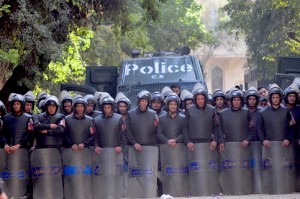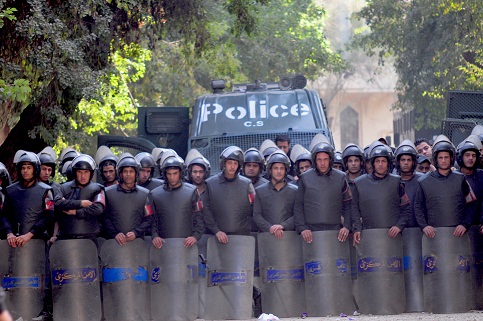
An Associated Press photojournalist was detained Monday morning by security forces as he was taking pictures around the Parliament building. Thomas Hartwell spent roughly one hour in the Parliament, but was released shortly after with his equipment and its contents seemingly intact.
Hartwell was taking pictures of the wall along Qasr Al-Ainy Street from behind the police lines when an officer approached him and questioned his presence in the area. Hartwell showed his press card and explained he was a journalist, at which point the officer tried to take his camera and asked him to accompany him to the Shura Council building.
“The officer told me to wait and went into the Magles El-Shura building. Shortly after he came out and called for me to follow,” Hartwell said. The officer was very polite, and offered him coffee over some questions.
“He wanted to know why I was taking pictures of the military and I said ‘would you rather I take pictures of the fighting,’” Hartwell explained. “I asked him, what is the point trying to stop people from taking pictures, as every phone now has a camera?”
The officer asked him what his opinion was on President Mohamed Morsy, and how many people actually support the Muslim Brotherhood. “They seemed quite interested in my opinion on the matter, and I found it very interesting that they asked about the Brotherhood’s support base,” he explained.
From his short time within the Shura Council building Hartwell noted that he did not see anyone else being held in the building. He attributes his relatively comfortable treatment by security forces down to diplomatic tact, saying presenting oneself in a co-operative manner. “If I present any kind of opposition to him he would come down harder because he must make sure he is seen by the other [security personnel] as being in charge,” Hartwell said.
“In the end,” Hartwell concluded, “it was a very interesting dialogue. They listened to my opinions but did not offer theirs.” He said the officers do not seem to be behind Morsy, but neither are they behind the protesters. “Many are likely left wondering where their constituency is,” he said.



